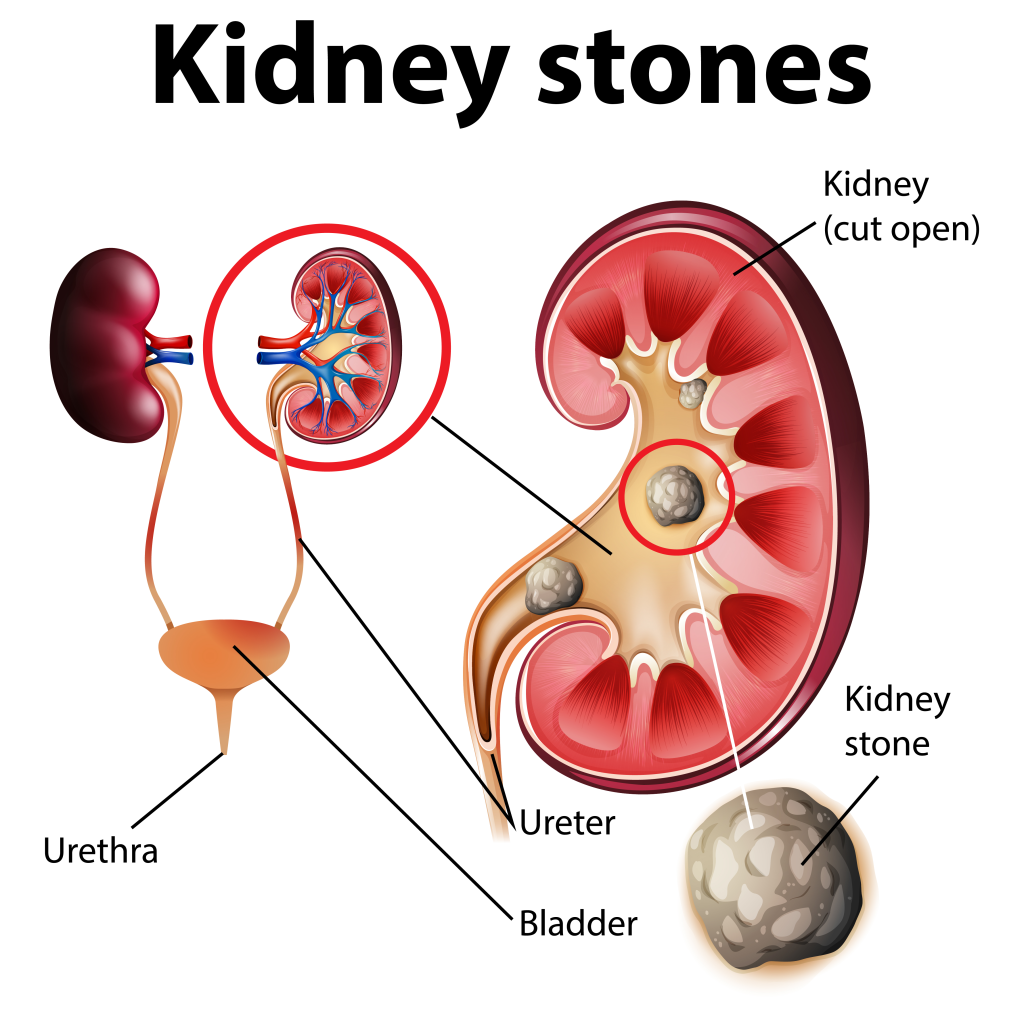Kidney Stones

Kidney Stones
Kidney stones are small, hard mineral deposits that form in the kidneys and can cause severe pain and discomfort. Understanding kidney stones, their causes, symptoms, and treatment options is essential for those who may be at risk.
Kidney stones are relatively common and can affect people of all ages. They can vary in size and composition, and their management depends on their size and location.
Causes: Kidney stones can develop due to various factors, including dehydration, a diet high in certain minerals, family history of kidney stones, and certain medical conditions. Understanding the causes can help individuals take preventive measures.
Symptoms: Kidney stones can cause intense pain when they move through the urinary tract. Common symptoms include severe lower back pain or side pain (often referred to as “renal colic”), blood in the urine, frequent urination, and a burning sensation while urinating. If you experience any of these symptoms, it’s essential to seek medical attention.
Diagnosis: Diagnosing kidney stones typically involves a physical examination, a review of medical history, and imaging tests such as a CT scan or ultrasound. Identifying the size and location of the stone is crucial for determining the most appropriate treatment.
Treatment Options: The treatment of kidney stones depends on the size, location, and composition of the stone, as well as the severity of symptoms. Small stones may pass on their own with increased fluid intake and pain management. Larger stones may require medical intervention, which can include extracorporeal shock wave lithotripsy (ESWL), ureteroscopy, or surgical removal.
In summary, kidney stones can be a painful condition, but they are treatable. Understanding the causes, recognizing symptoms, and seeking prompt medical evaluation are crucial steps in managing kidney stones effectively.
